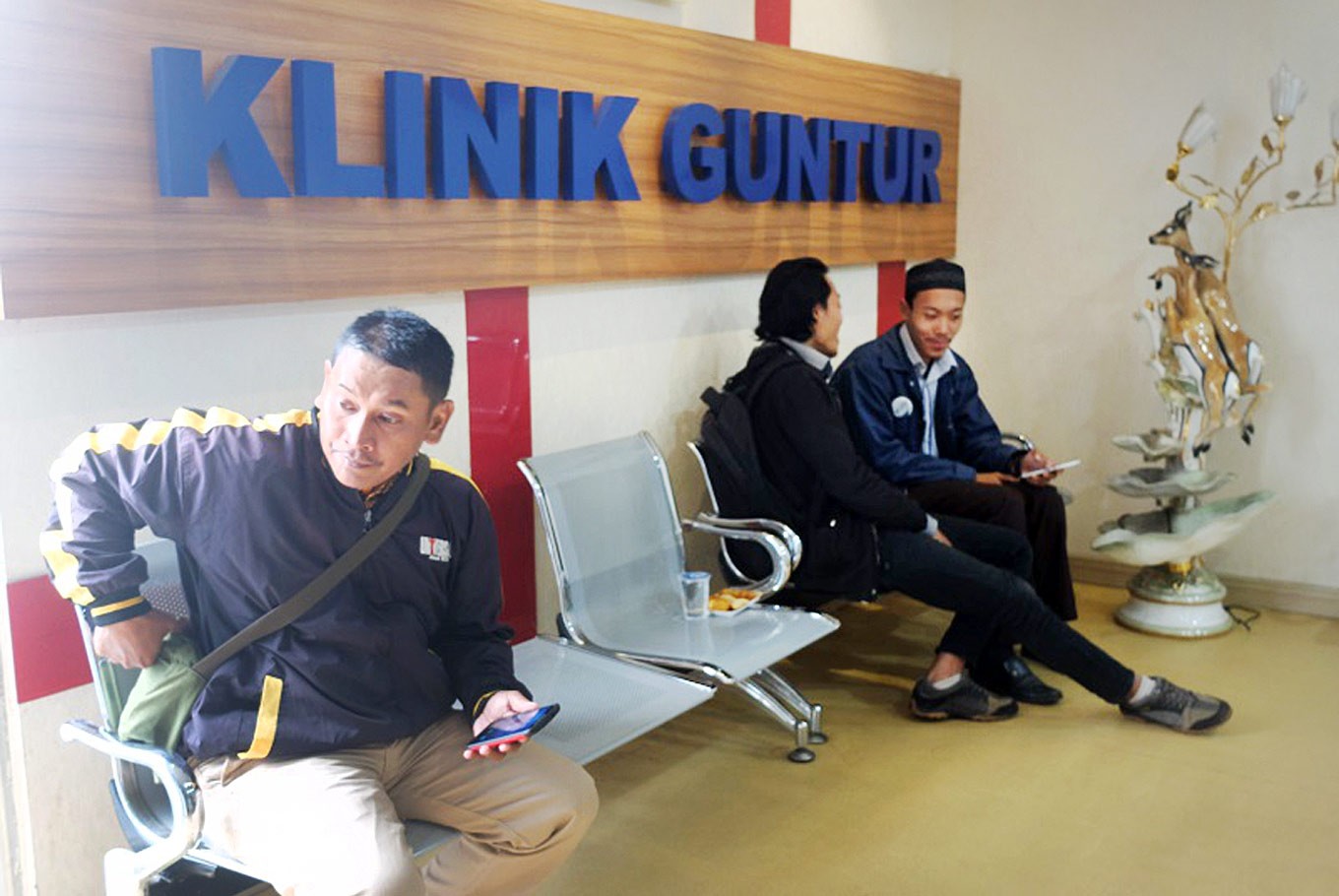Popular Reads
Top Results
Can't find what you're looking for?
View all search resultsPopular Reads
Top Results
Can't find what you're looking for?
View all search resultsAutoimmune disease patients hope for better care
Some practitioners’ lack of familiarity with autoimmunity symptoms may result in hasty referrals to certain specialists before the detection of this condition.
Change text size
Gift Premium Articles
to Anyone
Not everything associated with the word “auto” is a good thing.
For example, when the word “auto” is combined with “immunity”, it means something really bad is happening.
Under normal conditions, immunity protects a person from harmful bacterial invasion, however when an individual has autoimmunity, the body can no longer distinguish between good and bad bacteria.
Consequently, different symptoms arise in an autoimmune patient that are sometimes unexplainable.
“Symptoms of autoimmunity are varied, depending on the body part that is being attacked,” said Andini S. Natasari, an autoimmune sufferer who is also a postgraduate student of immunology.
Autoimmunity has various types, each of which may have several symptoms.
For instance, a patient with Sjogren’s syndrome (affecting salivary glands) feels fatigue and a headache, while one with thickening blood often gets bruises for no apparent reason, and another with celiac disease due to intestinal hypersensitivity to gluten has digestion and skin troubles.
According to Andini, autoimmune patients initially are unaware of what they are suffering from exactly, forcing them to consult a number of doctors and yet still fail to come up with any indication of the real culprit.
“We call this process doctor shopping,” Andini said.
Read also: Fighting against autoimmunity
The factor of heredity plays some role, especially among women, but autoimmunity is also activated by the environment or exposure to chemicals.
A child may inherit autoimmunity from parents but without triggers the child can live a healthy life.
Andini also mentioned that most patients were females, however, males were also not safe from autoimmunity despite their far less dominant number.
“One individual may have more than one type of autoimmunity so it is important for general practitioners to be knowledgeable about autoimmunity and to be able to consult with their patients very deeply for further recommendations to internists,” said Andini.
Some practitioners’ lack of familiarity with autoimmunity symptoms may result in hasty referrals to certain specialists before the detection of this condition.
Sari Saphera, who works for a ceramics firm, was detected to have autoimmunity in 2012. She had previously suffered from frequent fatigue, lack of orientation and bruising, which turned out to be the symptoms of her autoimmunity.
Sari also had several miscarriages due to the condition, which had remained undetected until she found a doctor who traced her complaints.
“At the time I was diagnosed with Sjogren’s syndrome, anti-phospholipid syndrome and rheumatoid [arthritis],” revealed Sari, adding that the list could someday grow longer.
With autoimmune patients’ need for general practitioners sensitive to symptoms of autoimmunity, an autoimmunity clinic was finally set up, located at the Guntur Clinic in south Jakarta.
The clinic also provides hypnotherapy offered by Dr. Eliza Mirabella, aside from counselling.
According to Eliza, hypnotherapy is useful to relieve despair that often arises because of endless medication or declining health.
“Hypnotherapy is expected to restore patients’ calm attitude and high spirits in experiencing their disorders,” added Eliza.
Although incurable, whatever is suffered by autoimmune patients can be relieved with drugs that need to be routinely consumed. However, many of these drugs are not available in Indonesia.
“Usually our friends or families who travel abroad buy them [the drugs] for us,” said Sari.
Some patients occasionally have to loan their drugs to others in need. Their declining health can be caused by several things, such as physical exhaustion, stress and weather changes.
Their unstable health has also caused some patients to lose their jobs.
“This will surely create difficulties for those who support their families,” said Sari, who feels very lucky to have tolerant superiors that care about her condition, thus allowing her to be absent from work or perform her job duties at home whenever she’s too sick to be present.
With only a few employers being so lenient, a lot more workers with autoimmunity have had to leave their jobs for being considered unproductive.
Therefore, solutions to the drug and workplace problems are being sought through advocacy to the level of decisionmakers by the Indonesian autoimmunity community.
Andini, Sari and Eliza hope the advocacy efforts will prove beneficial for autoimmune patients in Indonesia.











